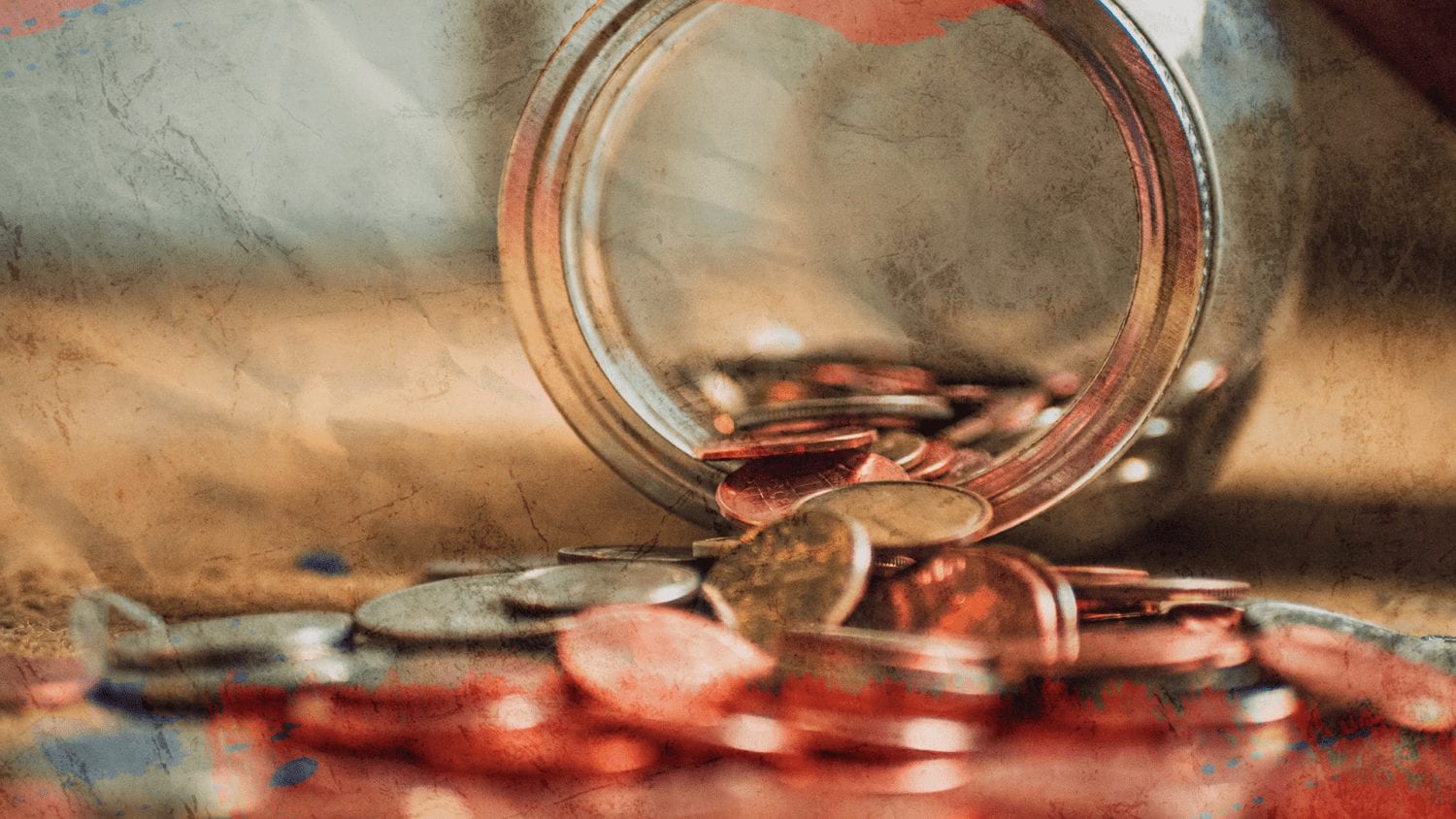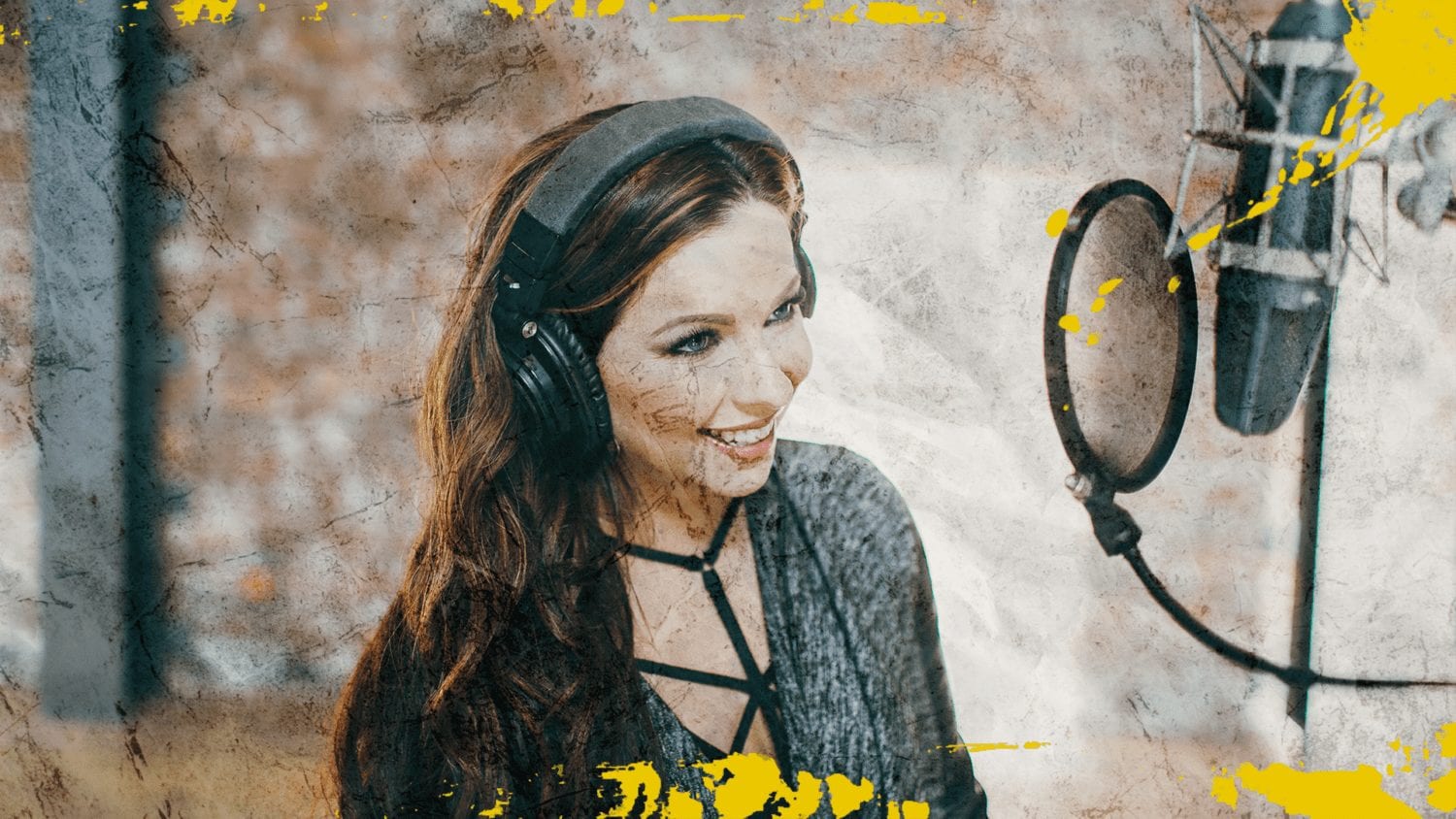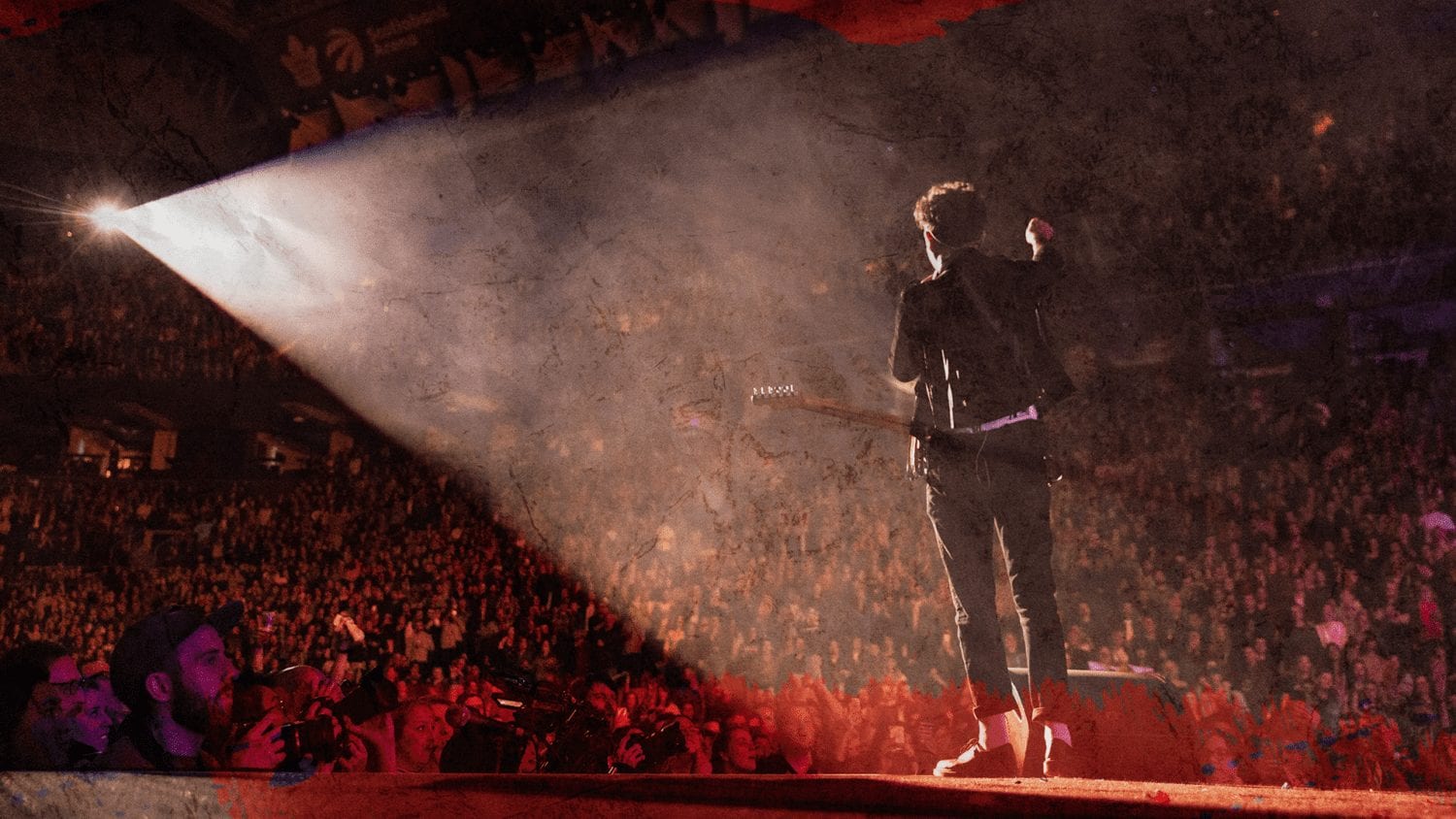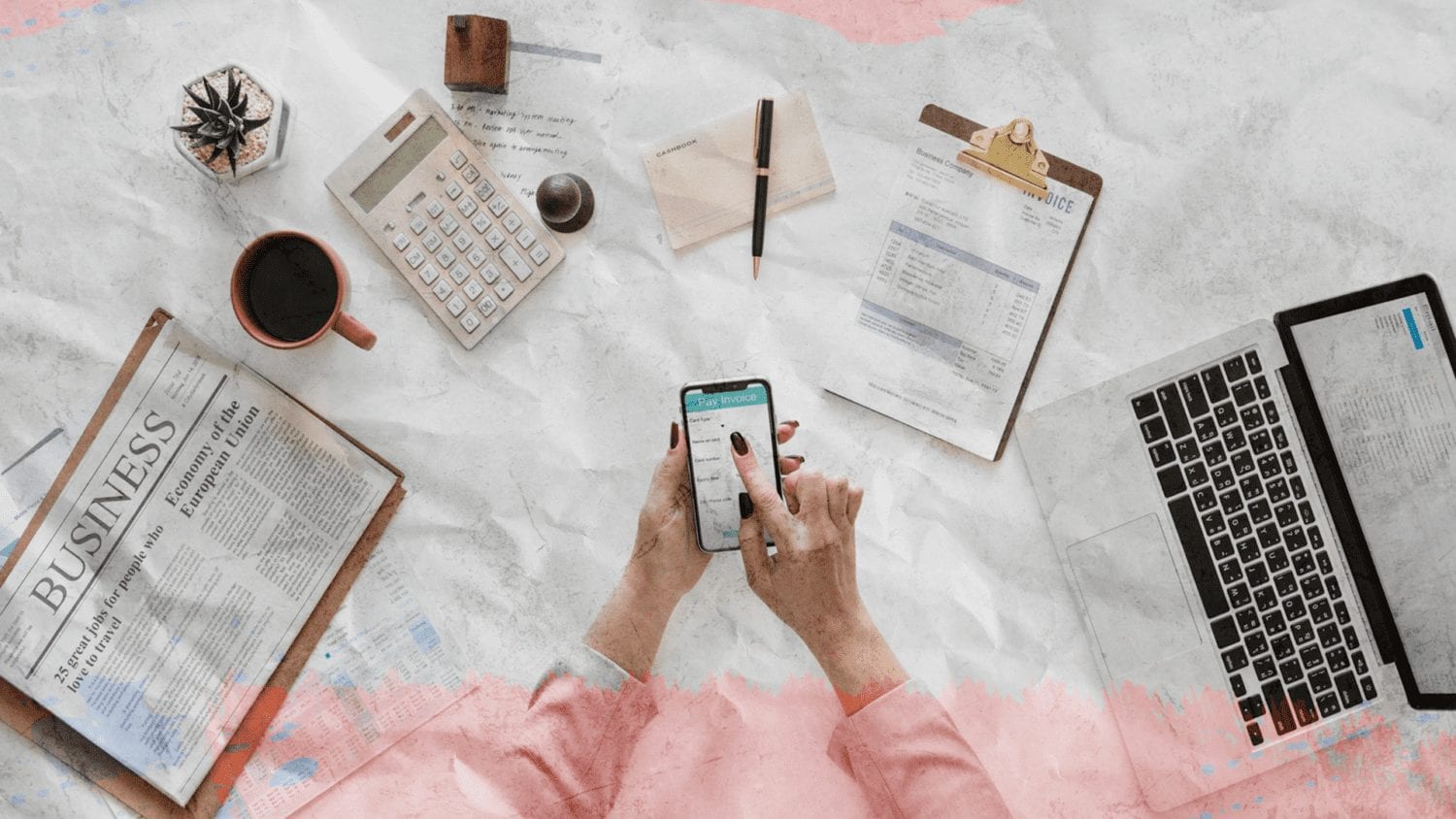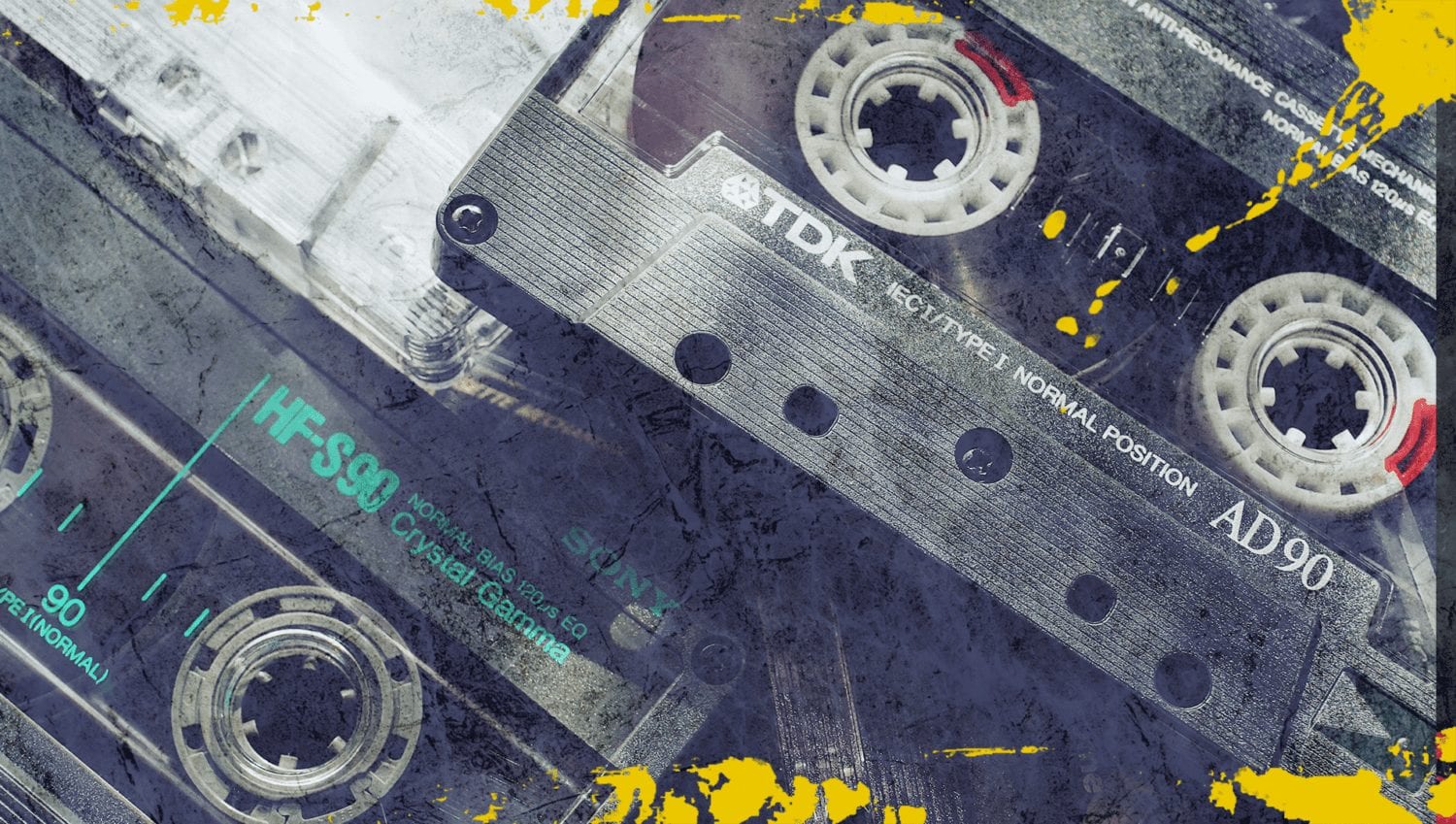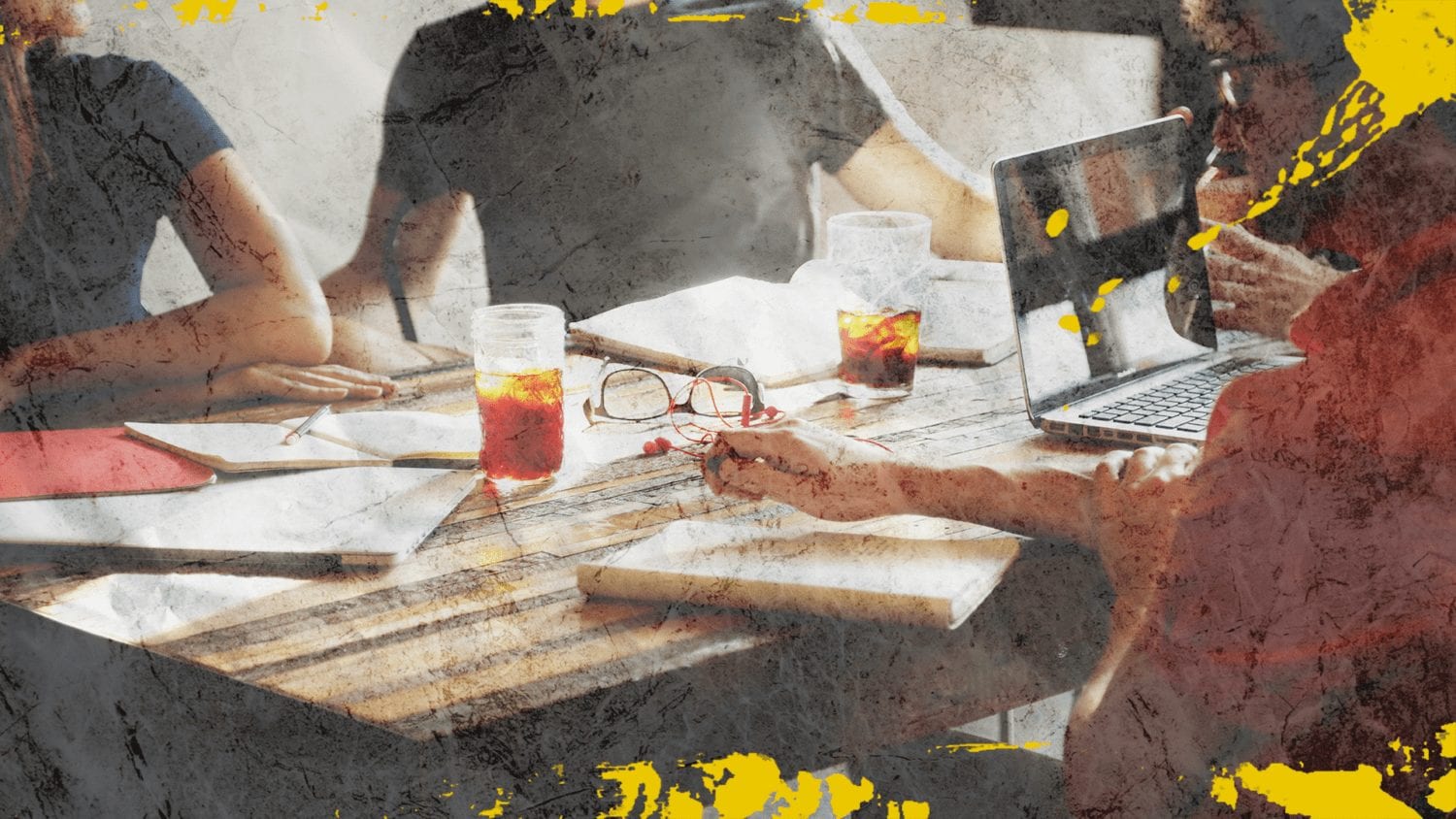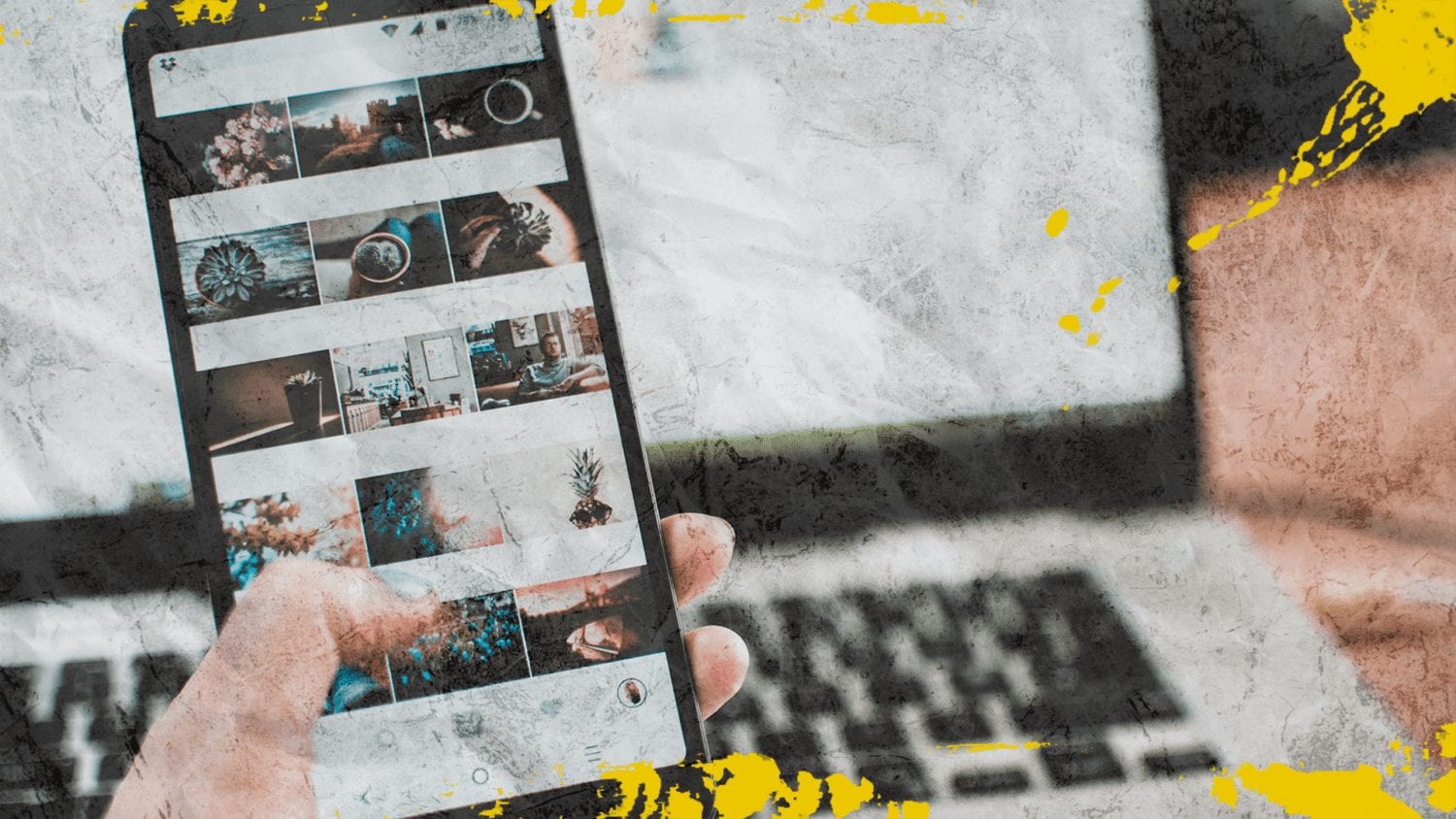
All of us struggle with fear: fear of rejection, failure and even fear of success. The only difference between those who are successful and those who are not is that successful people choose to pursue their goals despite the fear. It’s not that they don’t experience those same emotions, it’s only that their desire for the dream is bigger and they stop at nothing to get there. Today we continue with our psychological perspective on making it in the music industry, talking about those mindsets that cripple you and that you essentially give far too much power to. The first step to overcoming fear is to tackle them head-on instead of avoiding them, and by allowing yourself to go through those unpleasant emotions of trepidation. Not only are you giving yourself an opportunity to succeed, but you are investing in your personal development and building out your experience and skillset. The recipe of success is quite simple: to believe that the principles of success are out there in the world – that they exist and that you are able to apply them consistently. If you truly believe that, you will be unstoppable!
Key Points From This Episode:
- How fear is paralyzing you and stopping you from reaching your potential.
- Realizing that there are people out there who need to hear your music.
- Why fear is both a massively powerful yet powerless thing.
- The only thing that sets successful people apart from everyone else.
- The importance of taking little steps forward, even if you cannot see the full picture yet.
- Why you can sell anything once you understand the fundamentals of online marketing.
- The powerful effect of visualizing and mentally preparing before a big event.
- Making the decision beforehand not to be controlled by fear.
- The physiological reactions to something that happens in our imaginations.
- The difference between the fear of failure and fear of success.
- Believing that all the principles for success are out there and that you can apply them.
- Accepting that you will mess up sometimes and that hard times will come.
- And much more!
Tweetables:
“This fear, in general, is completely paralyzing you and it’s stopping you from reaching your potential, from doing the thing that you are supposed to do.” — @LEAHthemusic [0:05:12]
“Fear is a powerless force but it’s still the most powerful powerless force you’re ever going to face, and it’s robbing you of the only life you’ve got.” — @metalmotivation [0:08:02]
“Do not let fear make the decision. Your brain needs to make the decision and then you can train your body to do what you want it to after the fact.” — @LEAHthemusic [0:20:40]
Links Mentioned in Today’s Episode:
Call Savvy Musician Academy — www.callsma.com
Savvy Musician Inner Circle — https://savvymusicianacademy.com/innercircle
Welter — https://www.weltermusic.com/
Tony Robbins — https://www.tonyrobbins.com/
David Williams (Student Spotlight) — https://www.weltermusic.com/
Click For Full Transcript00:22 CJ: Well, welcome once again to the Savvy Musician Show. This is CJ Ortiz and I am the branding and mindset coach here at the Savvy Musician Academy and I am joined once again by her eminence as I love to call her. The lovely Leah McHenry, so good to see you, how are you doing?
00:39 Leah: I’m good CJ, how are you?
00:41 CJ: Wonderful. We have fun doing this, don’t we?
00:46 Leah: Yeah, it’s always a blast.
00:48 CJ: We have more fun than we deserve. No, deserve has got nothing to do with it. Today we’re going to talk about biggest fears musicians have and how to overcome them, if you were listening to our last episode, we kind of delved into the little bit of the subject of fear and our discussion of a poverty mentality. If you haven’t heard that episode, people are raving about it so go to their archives and go to listen to Episode 64 on overcoming a poverty mentality but today we’re going to talk about some big fears that musicians have and because fears and as we said in that last podcast, Leah.
It’s what people believe or don’t believe that really holds them back. We want to try and eliminate as much of that as we possibly can, not just give you the ins and outs of the gory details of how to in terms of online marketing but also some of the psychology. But we love to do also our student spotlights in these episodes, we’re talking about an Elite student today, David Williams who I’ve had the pleasure of talking to on a couple of occasions. He’s from Australia, a band called Welter and he writes in our elite group #win.
He says, “We are almost at our first $1,000 in sales on our shop. This could not have been possible if it wasn’t for this incredible Elite Academy. We still have so much to learn but at the same time, feel so ahead of the game. Thank you, Leah and your amazing team, for what you do, words can’t express the gratitude.
We can’t wait for the next 12 months and as Steven said in a previous post, now is the time to dig deeper and push harder, cheers to you all.”
02:32 Leah: That’s awesome David, we love that you shared your win.
02:35 CJ: Isn’t it great? If you’ve never made money with your music online –
02:39 Leah: That’s a big deal.
02:40 CJ: Yeah, you’ve spent some money to get into an elite program and you’re hoping this sort of thing works. Now, you’ve seen it and of course, Leah and I see the interaction with students all the time. I spent coaching calls with David just on some of his branding stuff early on when he got started but I see the questions, I’ve seen him wrestle over his opt-ins and his ads and get frustrated and trying to make things work and didn’t have a breakthrough and then you go to that next level thing and he got frustrated with that.
To see this effort and then for him to say hey man, we got our first thousand dollars online. That’s not a live event ladies and gentlemen, okay? That is selling music merchandise online and like you said, it wouldn’t have been possible for the incredible elite academy. Now, that may sound like we’re tooting our own horn but guys, no. Because I’m staring at a woman right now who did that very thing a hundred-fold in her own business.
It’s those very principles that she teaches in the Elite Academy and I’m just going to say this as a byword here, I don’t know where you are as a listener, I don’t know whether you’ve just seen an ad, stumbled on this podcast, or you’re in maybe the free mastermind group, maybe you’re Tom’s student. I don’t know where you are.
But it’s time for you to go to the next level. It’s time for you to stop and even talk a little bit more about some of the things that stop you today but we got to get past these fears, we got to get past your limiting beliefs and you have to take a step on yourself. You have to invest in yourself whether it’s a course, our inner circle newsletter, jumping from Tom to the Elite program, something needs to happen to get you to move forward.
Find out what that is, go to savvymusicianacademy.com and take advantage of what your next level is. But as I said at the outset, Leah, biggest fears musicians have and how to overcome them. Are musicians laden with fears? Is that even possible?
04:42 Leah: Yeah. I mean, that sounds like a silly question for us because we see and are dealing and interacting with musicians every day, but if you’re a musician listening to this, thinking you’re the only one, almost paralyzing fear, you need to know that this is really a very common, very normal experience and musicians everywhere across the world right now are all terrified and they’re all stuck and sometimes, that fear of – we’ll talk about the different things people are afraid of but this fear, in general, is completely paralyzing you and it’s stopping you from reaching your potential, from doing the thing that you are supposed to do.
This is part of your destiny. I believe it’s part of your calling if music is in your life, if it is in your heart and it is in your soul and you know that you were born to do this and you’re not doing it. You’re doing a major disservice to the rest of the world, there’s people out there I believe who are meant to hear your music and I’m not trying to just be romantic about it.
I’ve gotten messages from people, every year I get messages from people who have said that song of yours got me through a really dark time, I was suicidal. I was this and that and they’re not trying to flatter me, this is just them telling the story, your music really got me through that dark time. I get goosebumps thinking about it because you’re just like holy crap. I mean, I’m just trying to create art here. I had no idea it was going to have this kind of impact on other people in the world.
When I say there are people who are meant to hear your music, I don’t care if it’s black metal, I mean, the studies have been shown that even, a lot of people who listen to heavy metal, it makes them feel calm, it doesn’t actually make them feel angry, it has the opposite effect. It makes them feel calm and motivated and different things. Whatever music it is you’re making, don’t think that because you’re making something different or obscure or not mainstream that it doesn’t have a significant place I people’s lives because it really does.
06:41 CJ: That’s awesome. When I talk about fear and I talk about fear a lot in my coaching stuff, but I’ll often tell people, Leah, that facing your fears means confronting the powerless force that’s robbing you of the only life that you’ve got.
[0:06:57.4] LM: Yeah.
06:58 CJ: It’s important to understand that, you’ve got to get to the place where you finally confront the powerless force and I’ve always said, the fear is the most powerful yet powerless force you will ever face. It’s powerless. It can’t stop you. Only you give power and it’s like the scarecrow effect. You put the scarecrow out in the middle of the field, it’s obviously not a person.
But the crow gives life to the scarecrow through fear. We give life to the scarecrows in our life that keep us from feeding on the harvest that we could have in our creative expression and our music business and whatever it is that you’re doing, there is a harvest there for you because if you’re producing content, if you’re producing these creative expressions that people can enjoy. Like Leah said, this is your calling, you’re supposed to do this.
Then the only thing that’s going to stop you is going to be fear. You’re like that crow who gives life to the scarecrow. Fear is a powerless force but it’s still the most powerful powerless force you’re ever going to face and it’s robbing you of the only life you’ve got and so I don’t ever really advise people to be angry but if you’re going to be ticked off about something, well please, be ticked off about that.
08:19 Leah: Yeah.
08:19 CJ: Please be ticked off about the fact that something a simple as fear is robbing you of the only life that you’ve got. That’s a tragedy to see, you know what I mean?
08:32 Leah: Yeah, I just think about – if I had let fear stop me from producing my first album when nobody knew who I was, I was completely at ground zero, many people know my story but for those who don’t know it, I started with absolutely nothing, no fan base, no contacts, no industry connections, no understanding of the music business, I still really don’t, I don’t really care anymore but just no advantages at all.
Not only that, I think I was like eight months pregnant when I sang my first album so you know, when I was already a mom of three other kids at home. I was like the least cool rock star ever. Least cool ever like huge pregnant whale trying to sing high notes in the vocal booth and like making this rock metal-ish type album. I’m a joke, I feel like a joke right now and no one’s going to care but that’s okay, I’m doing it for me, I’m not doing it for anybody, I’m doing it for me so that’s why I did it.
If I had let fear rule me then, we wouldn’t have Savvy Musician Academy. This podcast wouldn’t exist. My music career wouldn’t exist, those people who were going to be dark times wouldn’t have heard those songs. So many things and the future things that will unravel even now, things that I’m working on, none of these things would really happen if it weren’t for – you know, just taking a bold step in a certain direction and it’s going to take boldness to do this.
It’s going to take guts, It takes guts to be a musician and to put yourself out there and make yourself vulnerable in front of the whole world, you know? The internet era is so different than the rest of history where yeah, you put yourself out there, it’s 30, 40 people, maybe a hundred people or a few thousand people. At the end of the day, they go home, don’t forget about you and now the internet’s forever.
Anything you put out there is there to stay, not to mention the trolls that are out, I mean, there’s so many. It feels like a much bigger deal because it is. At the same time, it’s the biggest opportunity that we’ve ever had and so it does take guts to put yourself out there. What I can tell you is that if you do have fear, you need to want what it is that you want more than the fear. It has to outweigh the fear. That’s all it is.
I spent a lot of time studying successful people, reading a lot of books by successful people and I found out and this should comfort you. That everybody’s scared. Everybody’s terrified. The only difference between successful people and unsuccessful people is that successful people do it anyway. That’s the only difference between the two.
They feel the same emotions, the successful people, they’re also afraid of rejection, they’re also afraid of failure, they’re also afraid of success, they’re also afraid of all kinds of things happening, we can talk about those specifics, but they do it anyway. They just have, I don’t know what is that missing ingredient. I think it’s just they’re willing to take a risk.
11:45 CJ: Right, well, II think what you said earlier. To me, it’s the crux of all of this which is, your scales are out of balance and any sort of pain in life is that, it’s scales out of balance and we all want justice which means equalizing the balance. Think of that pair of ancient scales. If you’re focusing so much on the pain or what it is that you’re afraid of then your scale is lopsided.
We have to put something on the other side of the scale to even it out and it’s what you just said. You know, which is focusing on the thing that you really want to do which is how you described your own personal story I think which is so important and such a great example. Because out of your step, even though we’re seeing through a glass darkly, you didn’t have a full semblance of where you were headed, you didn’t know where things were headed.
Either was so much out there, you just were going to take a step on yourself, believe in yourself and take a step out for yourself, past your fear but out of that came Savvy Musician Academy, several albums, hundreds of thousands of people and fans all over the world, changing the lives of musicians and I mean, you name it.
You’re still not even done yet. It’s like, we can’t see everything contained in a seed of what is potential. We know at least it can produce a forest. The more you meditate on the fact that so much can come out of your investment in yourself, so much can come out of you doing what you fear, then the more you think about that and the more you can envision that then the more you’re going to throw weight on the other side of that scale and suddenly, that pain from fear is not so painful anymore.
The greater pain will be I want what I want and the fact that it’s not there yet, you haven’t put that album out yet, you haven’t done the things that you said you were going to do. That’s again, it’s a powerfulness force but move forward into a knowing. Because like Leah described, so much came out of that simple step of faith we’ll call it, that she took and it continues to grow it, continues to work for her because with each new challenge, with each new barrier, she’s got to push past fear again.
We all have to do that and it’s the ongoing fear of failure, you know? You and I talk a lot about business and some of you might not know this but Leah is not just all about music, she has multiplicity of interests and she’s often telling me about little things that she’s doing on the side or thinking about doing and what not, we were talking about something earlier.
Without going into the details of it all, I thought it was just a great example of again, just putting yourself on a position where you’ve got to overcome the potential resistance that comes naturally from fear. Fears of failure, fears of success, et cetera.
14:38 Leah: That’s’ right. Yeah. I won’t get into it too much now but basically, I was trying to think of ways I can teach my kids about business and I know that kids, since we home school, it’s got to be hands-on, they’ve got to have some kind of a stake in it, some kind of ownership, some kind of expression so we’re coming up with some craft ideas and things like that that we can do together and this is really going to be fun and I could see it actually taking on a life of its own.
I’ll share more in the future ones we kind of get things of the ground, I’ll share about that story when the time is right but you still face the same things that’s going from idea. Hey, I’ve never done this before, I don’t know anything about it, I better start researching to from that idea to okay, now I’m going to take an action, let’s see what supplies do we need, let’s go to the craft store, let’s get what we need so putting some skin in the game right out of the gate and then testing a whole bunch of testing.
We’ll find out what works if it’s going to work out the way we think it’s going to and we’ll probably have some failures and then you know, we’ll put it out there and we’re going to learn together and this again teaching my kids and I get to learn with them which is going to be super fun.
And then, I get to teach my kids about marketing, we get to probably put something up on a Shopify store and teach them about this, that and the other thing. The whole thing is like, could it fail? Yeah, could it also succeed? Yes, it could. I mean I have an advantage now that I never had before, which is I understand online marketing. This is what I’ve always been telling our students this whole time especially our elite program and even those in the Tom program. You understand online marketing, you can sell anything. You can sell handmade soap, you can sell Kleenex. It doesn’t even matter what it is.
If you understand those fundamentals and those principles anything can work for you now because you understand it. So you have an advantage over everybody else. So just putting whatever handcrafted stuff they made in their garage on Etsy and think that “Well the platform has the customer so I don’t have to do anything.” That’s the big difference and so my kids are going to get a hands-on experience learning about research, taking ownership in something.
Risk, putting it out there and yeah, do I sit around thinking about all the ways it could fail and all the ways that we could get screwed and the way that we could lose our money from the supplies we have invested in? Like if I did that, what do you think the outcome would be?
17:05 CJ: Right.
17:06 Leah: I mean there are people that this is what’s tripping them up. They are just thinking about all the ways it could go wrong, all the ways they could get screwed, all the ways that it won’t work out and there is something to be said about what you dwell upon is probably going to happen, right? You don’t want to sit there and dwell on things that you don’t want. You should instead dwell on the things you do want to happen.
And this actually, I did have a nice experience with this. My first ever live speaking engagement that I had and it was – I do so many live events online but in person is a totally different thing and I was really nervous. I had a lot of nerves just in my stomach because it was weird because my mind was saying one thing, my body was doing something else. It took me a while to get control of my body. If we are talking about fear here so one of the things that I want people to know is that I spent quite a bit of time.
Leading up to this speaking event, visualizing and almost like frame by frame, picturing how exactly I wanted it to go, how I wanted myself to feel in the moment. So instead of feeling like I had major butterflies in my stomach, I imagined myself feeling completely confident and this is, “I am at home right now” like this is where I am supposed to be. I am at home, this is normal, there is nothing unusual about this.” So I just rehearsed that feeling over and over and over.
I spent – I’d wake up and I would just spend 20 minutes just lying there doing that and I would get my body to a point where that adrenaline and stuff would leave and I would come back later in the day but I would just go back to that place and it was really cool on the plane ride over. Before this speaking engagement, I wrote down a list of how I wanted to feel afterwards with like when I am done these are the things that I want to feel.
And I was just being very intentional and very purposeful in how I want my body to react and what I want my brain to do and it was really cool because the speaking engagement went almost exactly how I imagined it to go. Almost exactly and it was the first 30 seconds was like, “Oh holy crap” you know? And then it was gone and then it was like I am at home now. Okay, I have done this 100 times because it was all rehearsed in my mind and this is not a new concept.
I think Tony Robbins and NLP and whatever these things are called, I am pretty sure this is like athletes do this. I know they do that, you know Olympic athletes they rehearse mentality, you know golfers and stuff before they ever get on the field. So, I think that it is really powerful. I am amazed at what the brain can do. I am amazed at how powerful the mind is. So you know when it comes to fear and taking risks and being uncomfortable, there is a lot of layers to this.
Number one I think you need to first believe that it is not going to control you or make the decision that is it not going to control your outcome. It is not going to control your decisions. It is not the end-all of your future. You can have fear, you can experience it like I said my body was doing one thing. My mind was doing another, but I didn’t let my body make the decision. I could have cancelled the speaking engagement because my body was freaking out.
I had butterflies and I couldn’t stop that would be dumb. So you know that is a big one is do not let the fear make the decision. Your brain needs to make the decision and then you can train your body to do what you want it to after the fact.
20:50 CJ: Yeah that is so true. Again, this is something that happens in the mind and so that can be changed. If what you are afraid of is actually real, if the scarecrow was actually real then there is something to be afraid of, but the farmer is relying on the fact that the crow can’t tell the difference between reality and imagination. So fear is actually based on the imagination, which is why we can scare ourselves to death. You know we can imagine.
We torment ourselves with our imagination and so you can hear thunder and lightning outside and the lightning is flashing and suddenly the coat rack looks like there is somebody in the room, what happens? Your heart rate goes up, your body temperature increases, right? You have actual –
21:38 Leah: Cortisol.
21:38 CJ: Right, physical changes to something that’s not even there. So you know two people can approach an airplane or a roller coaster or whatever. For one person that rollercoaster releases endorphins because they love that experience. The other person is releasing adrenalin and cortisol because they are scared to death of it. They are going to experience the same physical thing. They’re both going to be rocked at the same way.
They are both going to go at the same speed. It is the exact same rollercoaster but their body is released completely different chemicals not based on anything that’s tangibly real. Simply based on what is going on in their mind that’s your power of fear and yeah, you want to move into those fears. You want to move into the thing that you are afraid of because again, it is a powerless force and probably the two ones that people most know about Leah are the fear of failure and the fear of success.
The one that we understand I think the best is the fear of failure as you have described it and I think one reason why people are afraid of failure is because they begin with this starting point that they are a loser, you know what I mean? That they have made too many mistakes. They’ve had too many failures. That is the way they see their personal narrative. So they are afraid to try something too big because they feel that they will fail and that that failure will prove what they have always told themselves that they are a loser.
So they are scared of that judgment. Fear of success has a similar form of judgment because you’re afraid, at that point not at failure but you are afraid of the criticism that success will bring because you are putting yourself out especially with this stuff that you teach where somebody is creating the social media following and engagement and they’re doing Facebook live videos and sharing their heart that sort of thing. They are scared to death of the trolls.
They are scared to death of the critics. Well we see this in the elite group where someone is getting negative comments and they are asking us what to do about that. We had to get past that as people being online a long time ago but for them it is new and there is that fear element there whether it a fear of failure in front of others, which confirms the fact that you are a loser or a fear of success where you’re afraid of the criticism.
24:20 Leah: I think with fear of success, I also think that there could be a fear of screwing it up once you have a little bit of success. I can speak to that one. Well, we had some explosive success in growth with Savvy Musician Academy like immediately after we launched it, it was very unexpected. It was the last thing I expected, in fact, I had no idea that it would resonate the way it did very strange experience to have and because we had struggled in our marriage and financially for so long.
And because I come from a background of never having money or anything and then this explosive growth, the first feeling I had was not like, “Oh we won the lottery” far from it. It was I don’t want to screw this up. Now there are customers depending on us, we have so much responsibility now. There is that and then I also have this weird feeling that came on me like I feel like something bad is going to happen now like I don’t know what that was. That was weird and I couldn’t shake it for six months.
It was just this explosive growth and then that must mean something bad. I don’t even enjoy it for a second Leah, don’t even enjoy it and I feel like that made a little devil in my shoulder or something but it was like, “Don’t even enjoy any of this because it is all going to be taken from you tomorrow” and so there is a weird thing that happens and I don’t know if it is just in creative people or all entrepreneurs but I found out later on that this is not unique to me.
That a lot of people do experience that. So, it is a fear of screwing it up. It is a fear of especially if you have any success that is rather quick and some people in our programs they are experiencing some quick growth and you just think, “Oh geez” I have never actually talked about this before publically or just like delved into it and I am sure there is a lot of layers underneath that one particular fear of it is all going to go away but I think there is something to be said about a fear of success there.
So I was never afraid to be successful. It was more like I don’t want to ruin things. I don’t want to disappoint people. I don’t want to be a bad steward of any of what we have of this company, of our staff. All of a sudden it requires you to level up to a new place in your character and if you are not prepared for that, I think that’s scary. What do you think when I tell you that?
26:51 CJ: You know I think you’re exactly right. I think the keyword you just said there is character, which is part of the problem with overnight successes is that they don’t have the character to sustain that sort of growth, which is why things like the courses that you teach specifically this elite academy are good because there is a process to it. It is not easy. We mentioned David Williams at the outset talking about some of the struggles that he had and voiced as he was working through the process.
But what it does is it gives you this appreciation for the growth that you experienced in anything that takes a long time to achieve because it gives you then the character to sustain that success. We don’t trust ourselves, you know? So it is ultimately coming back to that sense of insecurity, which is why again you have to have a firm belief in two fundamental things. Number one, that there are principles that exists in this world to create any desired outcome that you have.
27:50 Leah: Yeah.
27:51 CJ: If you are dreaming about sending a rocket into space, if you are dreaming about whatever it may be, the principles are there to achieve any outcome that you want especially selling music online. So the principles exist to achieve any outcome that you want and then secondly, you have to believe that you are fully able to apply those principles consistently to create that outcome. If you doubt either one of those, right?
If you say no I am really good at what I do but the universe is just against me, that’s not going to work or if you say, “No, I know the principles out there and they work but I don’t trust myself” well then that is not going to work either. You got to fully convince that the principles exist, and you got to be fully convinced that you have the power and the capacity to do it and I guarantee you that you do. You might say, “Well CJ, Leah, I haven’t ever done it in the past.”
So I have tried before and then I give up or I tried before I get discouraged. I tried before and I fell off the wagon, you know got off course, whatever it may be well, so what? I mean if I could show up to your house every day and point a gun to your head, I could get you to do everything you needed to do to become a billionaire, right? Well, I am not going to show up every day but what it tells you is, you have that potential. What you don’t have necessarily is the pressure or the motivation.
Or whatever it takes to get you to enact that out and so, CJ well what’s the difference? Well, the difference is there is good news because as we said before, we can change you. If the musical gods are just against you, if the powers that be, if the powers of the force just hates you and don’t want you to succeed and it is going to block your success no matter how hard you try or how good you are, if the universe is against you, well then we are helpless.
We’re hopeless, there is nothing that we can do. So what’s going to have to happen then for you is a simple change in your beliefs. Fear is the most powerful yet powerless force you are facing and don’t let it rob you of the life that you’ve got.
30:03 Leah: We’re done here now.
30:05 CJ: That settles that.
30:06 Leah: Yeah, no that’s so good. It’s so true and knowing that one last point here, you’re going to screw up. You are going to mess it up. It is not going to go well all the time and just be okay with that, just get over it. I accept the fact that in some future speaking engagement I am going to screw up. I fumble on my words sometimes. Sometimes I think one thing and my mouth doesn’t want to work correctly, whatever. Who cares?
At the end of the day, nobody freaking cares and I think that if we realize that people don’t think about us as much as we think they do, we would do a whole lot more.
30:44 CJ: Ain’t that funny? That is so funny. Well guys listen, I know we’ve gotten psychological on you in the last couple of episodes, but I think this stuff is so necessary. Like I’ve said before, you could achieve tremendous success with half of the stuff Leah teaches you but you can’t do anything with a 100% of what she teaches you if you’re stopping yourself and so that is why psychology here is just so important and let me just say again, we’ve got so many great reviews from you guys.
So we are kind of addicted now so we want to hear more from you guys. So please, take the time right now to go and leave us a review on whatever player you are listening on. Give us some stars if they gave you that option. Go into the group if you are in our free mastermind group or in our student group for Tom or even Elite, please give us feedback and if there is something you’d like for us to cover, maybe have some good ideas for a show, feel free to leave that as well but always a pleasure Leah, good to see you.
31:46 Leah: Yeah, you too. Thanks guys and take care.

